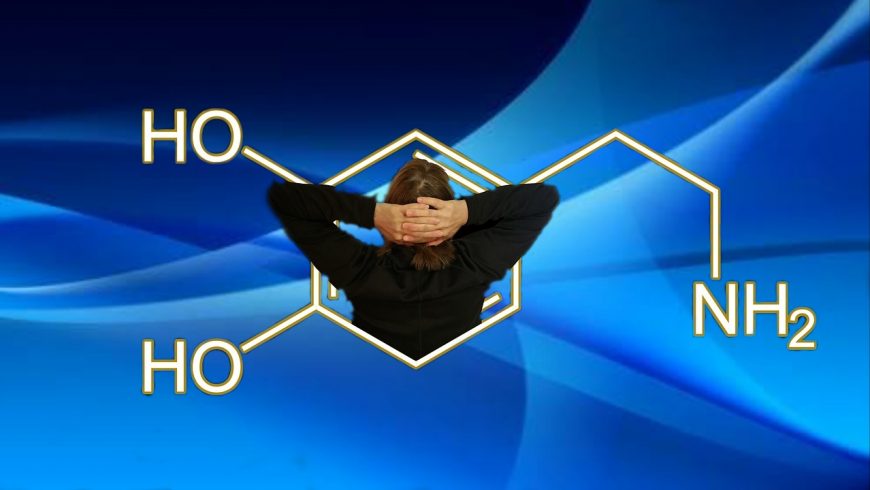DOPAMINE FASTING?
Prof. Chandana Choudhury Barua
Dept. of Pharmacology, CVSc, Khanapara
As a pharmacologist, a new terminology intrigues me and I try to share my knowledge with readers. Dopamine is one of the body’s neurotransmitters, and is involved in our body’s system for reward, motivation, learning, and pleasure. While dopamine level increases in response to rewards or pleasurable activities, however, it doesn’t actually decrease when we shun over-stimulating activities, so a dopamine “fast” doesn’t actually lower dopamine levels.
Dopamine is a neurotransmitter which motivates our brain for various activities – be it exercise, talking and TV. It rewards us for behaviours which we find pleasurable and motivates us that they are worth repeating. In order to reset our brain, dopamine fasting is a new fad which took off at the end of the last decade to avoid all of those behaviours. Dopamine is a natural neurotransmitter released from our brain, so why not handle our dopamine the way our grandparents did?
During this digital era, we are very much active in the social media. We wait for a dopamine hit; from a ‘like’, ‘comment’, ‘share’ or even a ‘streak’ on Snapchat. Each time we get one, they reinforce our brains to stay on screens and then come back again time and again. This wouldn’t be a problem if we didn’t already know about the negative impact of the screen on our mental and physical health. In this context, I have come across another problem, Digital amnesia. As the name implies, we unconsciously stop using our memory by depending on our app in the mobile, like reminders, to do lists, or not memorising the phone numbers of our relatives and friends, which were earlier too common; our sleep, concentration and creativity being the worst hit. So, if we want to take back control of our brains and redirect our attention to a more fruitful place, then we need to rebalance our reactions to screens – may be by going on an occasional dopamine fast.
The kind of hits we get from social media and technology are fast and repetitive, so an ideal dopamine fast is necessary to replace the time we would be on our phone with slow-release enjoyable activities. But, just taking away the phone may not necessarily limit our dopamine if we spend that time watching TV or playing video games. A swim, reading a book or cooking a long dinner are better options. Anything away from quick gratification provides the satisfaction of dopamine but in a far healthier and more productive way. This time can be utilised to retune the morning routine or incorporate more elements of reflection and exercise to an already busy life. We can have a new resolution with dopamine fast.
It is stated that the six compulsive behaviours that may respond to a dopamine fast are: emotional eating, excessive internet usage and gaming, gambling and shopping, porn and masturbation, thrill and novelty seeking, and recreational drugs. But according to experts, dopamine fasting can be used to help control any behaviours that are causing distress or negatively affecting our life.
It is recommended that we start a fast which minimally affects our life style. It can be practiced from one to four hours at the end of the day (depending on work and family demands), for one weekend day (spend it outside on a Saturday or Sunday), one weekend per quarter (go on a local trip), and one week per year (go on vacation). Many celebrities go on weekend tours to undisclosed destination where they do not have access to internet. It seems like many mindfulness practices and good sleep hygiene, in the suggestion of no screen time before bed.
The bad news is that people take up more extreme, austere and detrimental versions of this fasting, based on misconceptions about how dopamine works in our brains. They are not eating, exercising, listening to music, socializing, talking more than necessary, and not allowing themselves to be photographed.
Human relations (unless it is somehow compulsive and destructive) is in the kind of healthy activities that are supposed to replace the unhealthy ones, such as surfing social media for hours each day. Hence by abstaining themselves from human contact, the dopamine fasters are depriving themselves of healthy things, a misinterpretation of a captivating title.
The idea behind the dopamine fast was to provide a basis and plan for disconnecting from days of technology-driven frenzy and an alternative more simple activities to help us reconnect us with ourselves and others. This idea is decent, healthy and meaningful, but it’s certainly not a new concept. Most religions also suggest a rest day (for example, the Jewish Sabbath) or holidays without technological distractions, so that we can reflect and reconnect with family and community. Thousands of years of meditation also suggest that a mindful approach to living reaps many health benefits.
Unfortunately, the modern wellness industry has become so lucrative that people are creating tetchy titles for age-old concepts.




